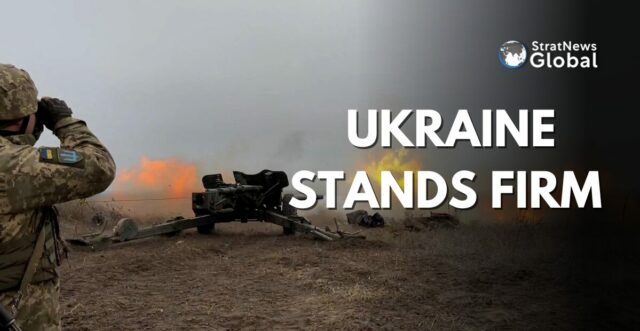Ukraine’s top diplomat announced on Wednesday, following “very deep and concentrated” discussions in China, that Kyiv is open to talks on the conflict with Russia. However, Ukraine’s sovereignty and territorial integrity must be fully respected.
Key Principles for Negotiation
Foreign Minister Dmytro Kuleba, in a video address from his ministry, reiterated that Ukraine must be involved in any agreements. He emphasized that no deal could be reached without Ukraine’s participation and criticised Russia for not showing readiness to negotiate sincerely.
Kuleba is the highest-ranking Ukrainian official to visit China since Russia’s invasion in February 2022. He held over three hours of talks with Chinese Foreign Minister Wang Yi, according to a Ukrainian source in the delegation.
“I stressed two principles that must be firmly upheld. First, no agreements about Ukraine without Ukraine,” Kuleba stated in his address. “Second, full respect for Ukraine’s sovereignty and territorial integrity. If these principles are adhered to, we can engage in any discussions and seek solutions.”
Current Stance and Readiness
Kuleba’s ministry noted that Ukraine is ready to engage “when Russia is ready to negotiate in good faith,” but emphasised that no such readiness is currently observed from Russia.
Russian troops have made incremental advances in eastern Ukraine during the 29-month-long invasion, ahead of the U.S. election in November, which could see Donald Trump return to the White House. Trump has threatened to cut vital aid to Ukraine.
China’s Role and Neutral Stance
China, the world’s second-largest economy, positions itself as neutral in the war. Despite this, it declared a “no limits” partnership with Russia days before the 2022 invasion and has provided diplomatic support and economic backing to Russia.
At the conclusion of the Guangzhou talks, a Ukrainian source said the meeting lasted “longer than planned” and described it as a “very deep and concrete conversation.” A Chinese foreign ministry spokesperson indicated that both ministers discussed the importance of building long-term bilateral ties and mentioned that China would “continue to expand its food imports from Ukraine.”
Humanitarian Concerns and Peace Efforts
Chinese spokesperson Mao Ning expressed concern over the humanitarian situation in Ukraine. She noted that both Russia and Ukraine had shown varying degrees of willingness to negotiate. “Although the conditions are not yet ripe, we support all efforts conducive to peace and are willing to continue to play a constructive role in bringing about a ceasefire and the resumption of peace talks,” she added.
Long-Lasting Peace Solutions
Kuleba agreed that both sides recognised the need for “a just and lasting peace” rather than temporary solutions. The Kremlin acknowledged Kuleba’s willingness to hold talks as aligning with Russia’s position but stated that more details were needed.
Russian President Vladimir Putin indicated in June that Moscow would end the war if Kyiv relinquished four partially-occupied Ukrainian provinces and abandoned its NATO ambitions. Kyiv dismissed these demands as an absurd ultimatum.
Future Peace Summits
Ukraine plans a second summit later this year to advance its vision for peace, following an initial gathering in Switzerland in June. The first summit drew dozens of delegations, but Russia and China did not attend. Ukraine hopes the second summit will be hosted by a “Global South” country and that Russia will participate.
In light of a potential Trump presidency, diplomatic activities have intensified. Hungarian Prime Minister Viktor Orban visited Kyiv, Moscow, Beijing, and Washington this month on what he called a “peace mission.” Ukrainian President Volodymyr Zelenskiy dismissed Orban’s efforts, stating that only major actors like the United States, China, or the European Union are in a position to mediate.
China and Brazil published a joint six-point peace proposal in May, supporting an international peace conference recognised by both sides in the conflict.
With Inputs from Reuters
Research Associate at StratNewsGlobal, A keen observer of #China and Foreign Affairs. Writer, Weibo Trends, Analyst.
Twitter: @resham_sng





